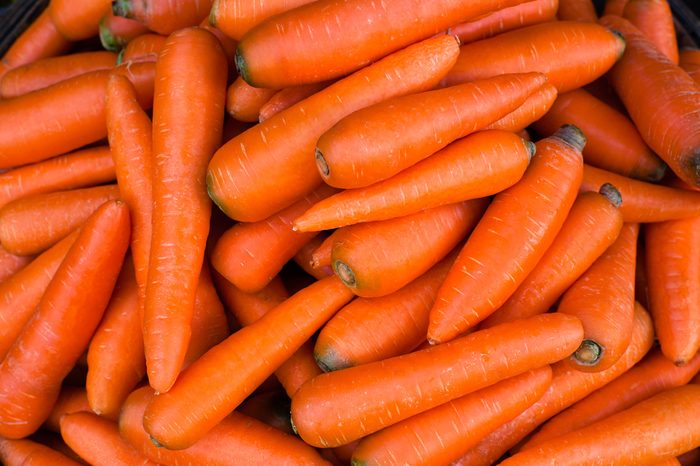
Carrots
These veggies supply a hearty helping of beta-carotene, and that’s valuable: “Beta-carotene is a precursor to vitamin A, a critical nutrient for skin health that also slows skin aging,” says Cynthia Bailey, MD, a dermatologist in Sebastopol, California. “As an antioxidant, it helps fend off aging for your entire body, too,” says Bailey. “You get an added bonus because beta-carotene warms your complexion, and a beta-carotene-rich glow has been scientifically proven to be more attractive than a suntan.” Carotenoids, such as beta-carotene, are best absorbed when paired with healthy-fat foods. Enjoy carrots with eggs in a salad, puree them into a creamy soup, or dip them into guacamole.
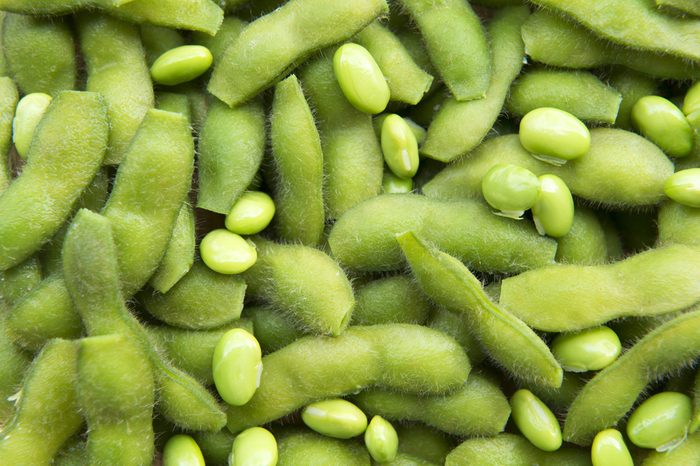
Edamame
This hearty protein is full of good-for-you nutrients, including linoleic acid. “This is an essential fatty acid your body can’t make, so you must consume it in your diet,” says Joan Salge Blake, EdD, RDN, a clinical associate professor of nutrition at Boston University. It’s also the most abundant fatty acid in your skin. “In a study of about 4,000 women, people with a diet higher in linoleic acid were associated with a lower likelihood of skin atrophy, better known as the thinning of your skin, which magnifies wrinkles on your face,” says Blake. “The older women in the study who had lower dietary intakes of both linoleic acid and vitamin C also had drier skin.” (Psst: Here are the anti-aging secrets dermatologists won’t tell you for free.) Edamame is delicious slightly salted and served as a snack, mixed into a stir-fry, or even blended into a breakfast smoothie.
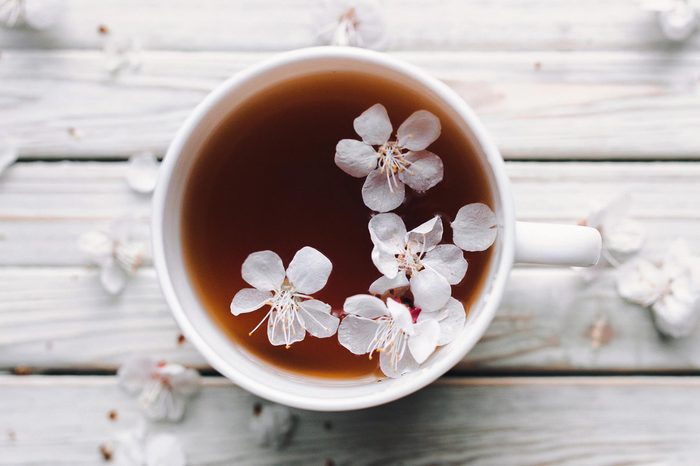
Tea
“I always sip a warming cup of tea first thing in the morning, and its anti-aging benefits are just an added bonus,” says Toby Amidor, MS, RD, CDN, author of The Healthy Meal Prep Cookbook. As you age, bone mineral density tends to decrease, which can lead to fractures. A study published in the American Journal of Clinical Nutrition found that elderly women who sipped on tea had a lower risk of bone fractures and had stronger bone-mineral density compared to women who did not include tea in their diet. Researchers in the study credited flavonoids in tea, which may help minimize the risk of osteoporosis, or brittle bones, as you age.
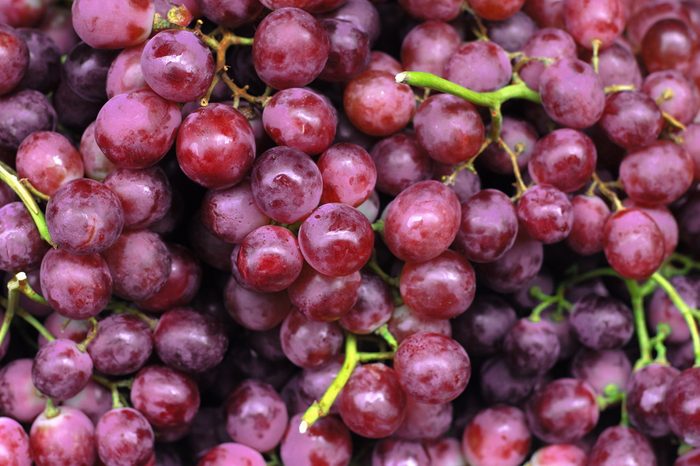
Grapes
“I always make room for grapes in my daily diet,” says Amidor. The antioxidants and other polyphenols found in heart-healthy grapes may also play a role in healthy aging. “Preliminary studies suggest that grape polyphenols may contribute to brain health, colon health, eye health, and more,” she says, “and they appear to help maintain cell health, which of course is critical to our overall health.” Polyphenols are found in every part of the grape—the skin, flesh, and seeds—and in grapes of all colours, including red, green, and black. Snack on frozen grapes or add them to a salad.
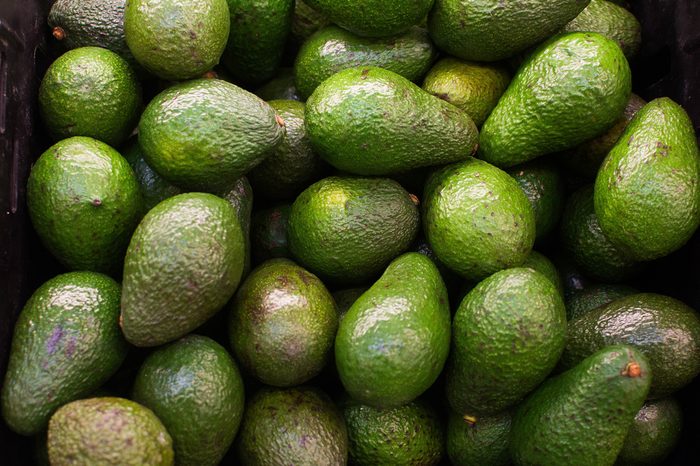
Avocado
Avocados are full of monounsaturated fatty acids, and that’s a good thing. “Avocados contain anti-inflammatory fats that help to moisturize our skin, delay wrinkles, and protect us from harmful toxins from the sun,” says Melissa Mitri, MS, RD, a dietitian in Milford, Connecticut. “They’re delicious in smoothies, with eggs, in salads, or made into guacamole.” Ani Petrosyan-Baran, an acupuncturist in Jersey City, NJ, enjoys avocado on whole-grain toast. “Or you can even have a quarter of an avocado, plain, to reap the benefits,” she says. Try it with a sprinkle with everything bagel seasoning!
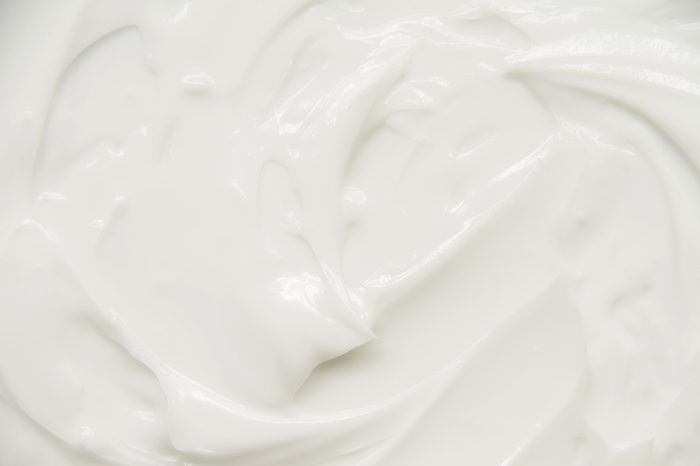
Greek yogurt
“This type of yogurt is higher in protein than other yogurts, and as we age we need more protein-packed foods,” says Christine Rosenbloom, PhD, RD, a dietitian in Atlanta and author of Food & Fitness After 50. “Dairy, like yogurt, contains the amino acid leucine, a trigger for muscle building and repairs,” says Rosenbloom. And yogurt has calcium. “I also check the label for yogurt that contains vitamin D,” she adds. Your body needs vitamin D to optimally absorb calcium. (Here are some nutritious ways to enjoy Greek yogurt for breakfast.)
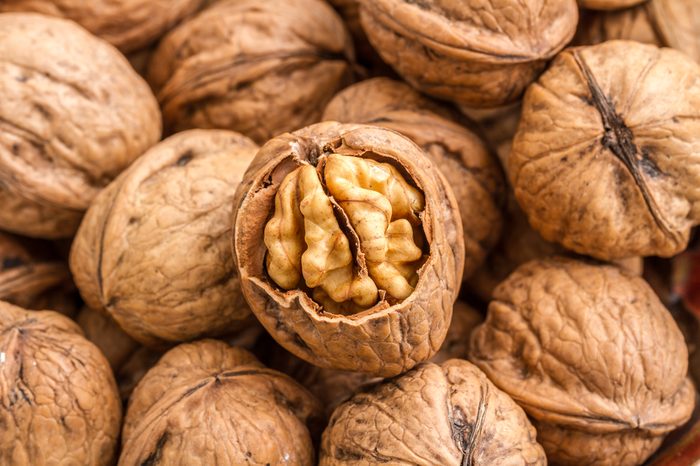
Walnuts
“These are a portable snack packed with anti-aging nutrients,” says Ginger Hultin, RD, a dietitian in Seattle and a spokesperson for the Academy of Nutrition and Dietetics. “These include healthy unsaturated fats such as alpha-linolenic acid, which is good for the heart, brain, and skin,” says Hultin. “Walnuts are also a source of biotin for optimal skin, nail, and hair health.” Walnuts are a great snack on their own, and they also make a delicious topping for salads.
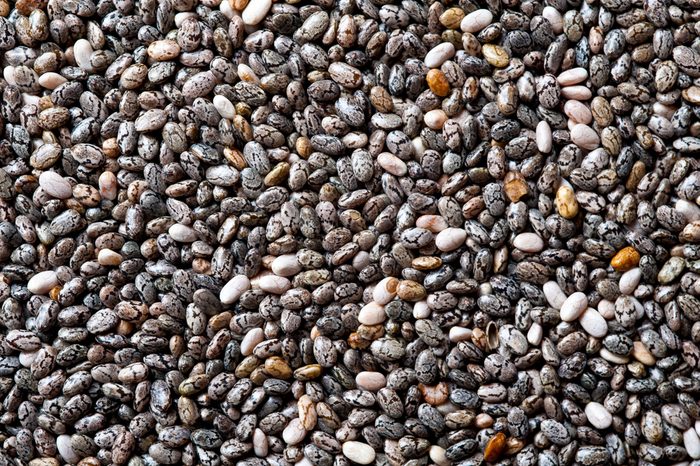
Chia seeds
“Ah, where do I start with chia seeds?” says Arlene Dijamco, MD, an integrative physician in Roswell, GA. “They are packed with plant-based omega-3s, antioxidants, and minerals important for clear thinking, memory, mood, heart rhythms, and skin texture,” says Dijamco. “The gel-like consistency of hydrated chia seeds provides soluble fibre that not only helps keep your digestive tract smooth moving but also helps keep cholesterol levels balanced and helps you feel satiated—decreasing your likelihood of overeating.” Plus, chia is so versatile. You can use chia seeds in drinks, pudding, oatmeal, veggie patties, salad, granola, and as an egg replacement in baking.
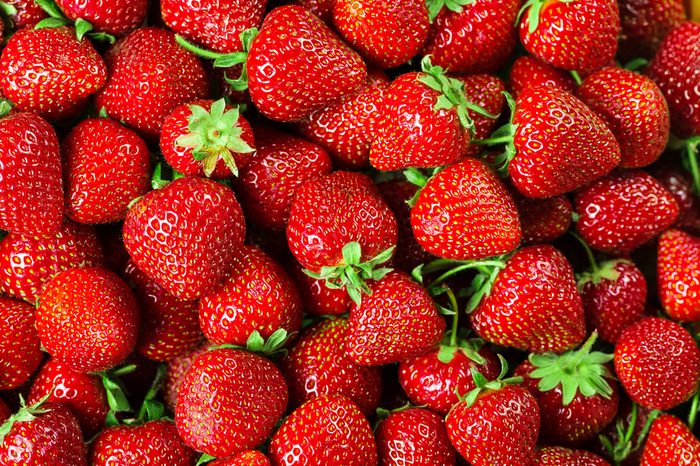
Berries
“I eat berries—strawberries, blueberries, blackberries, raspberries, or cranberries—every single day,” says Sharon Palmer, RDN, a dietitian in Los Angeles and author of Plant-Powered for Life. “In the summer, I eat fresh berries. Then I switch to dried and frozen when they are out of season,” says Palmer. “The research on brain health benefits as they relate to cognition during aging is quite promising.” Berries are packed with powerful antioxidant and anti-inflammatory compounds. “They provide vitamin C, a nutrient that helps you absorb plant-based iron from foods such as spinach, tomatoes, and beans when the foods are eaten in the same meal,” she says. Add raspberries to a spinach salad, or enjoy them in a berry popsicle.
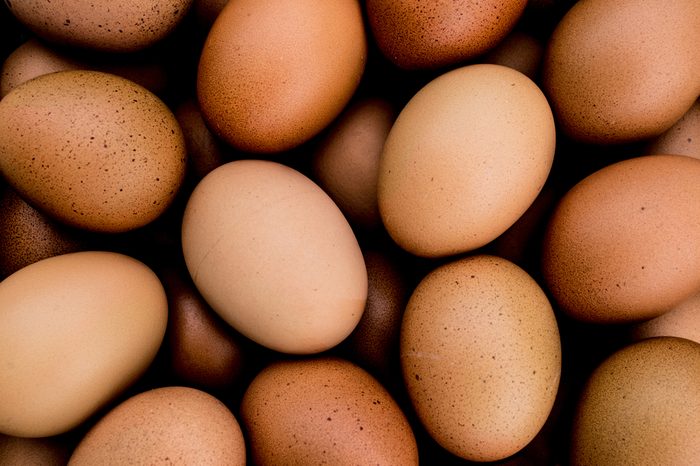
Eggs
“Protein-providing foods such as eggs help support muscle and metabolism,” says Jessica Crandall Snyder, RDN, CDE, a dietitian in Denver, CO. “This is especially important as you age, as most people lose 0.8 percent of their lean body mass every year after the age of 40,” says Crandall. “If you want to prevent muscle breakdown, eating protein-rich foods is critical.” Also to properly support the recommended resistance training, you need protein to develop and maintain your lean muscle, she adds. Enjoy eggs in an omelette, as avocado deviled eggs, or in faux fried rice.
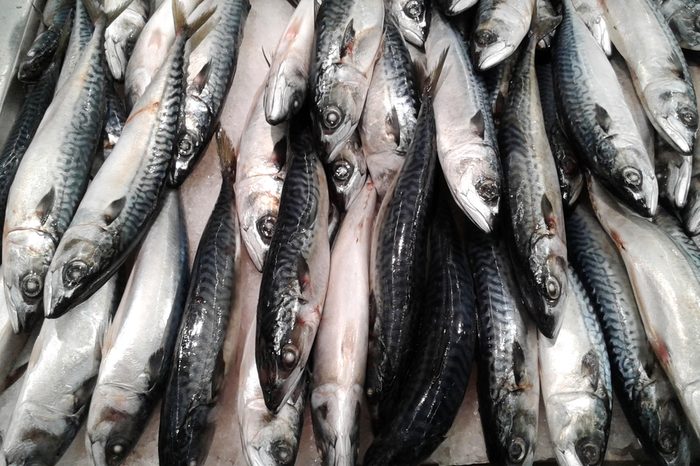
Fatty fish
“Salmon, mackerel, tuna, and sardines are fatty fish that contain high levels of omega-3 fatty acids, which are known to reduce inflammation in the body and skin,” says Tsippora Shainhouse, MD, a dermatologist in Los Angeles, CA. “Two to three servings a week can also help reduce LDL cholesterol and triglyceride levels. Adding these fish to the diet helps balance the omega-3 to omega-6 ratio, the latter of which can actually trigger inflammation,” says Shainhouse. “Fish oil supplements can substitute for eating these healthful, fatty fish, but they don’t provide the low-calorie protein benefit of eating the fish itself.” Grill salmon for dinner, or whip up a tuna salad.
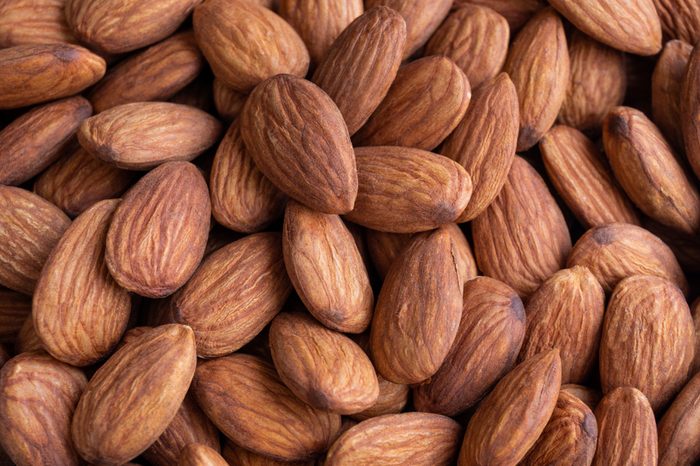
Almonds
“I eat nuts daily—all types but especially almonds,” says Bonnie Taub-Dix, RDN, author of Read It Before You Eat It. “They help me feel full and they are heart-healthy, as studies have shown that almonds might lower cholesterol levels. They also help keep blood sugar levels from spiking (because of the healthy fat within), they have a satisfying crunch, and most of all they are decadently delicious,” says says. “It’s important to have healthy fats in our diet to help promote healthy skin as we age along with a sense of well-being.” Enjoy almonds as a snack, use them as an ingredient in energy bites, or add as a topping to oatmeal. (Here’s everything you need to know about the health-boosting benefits of almonds.)
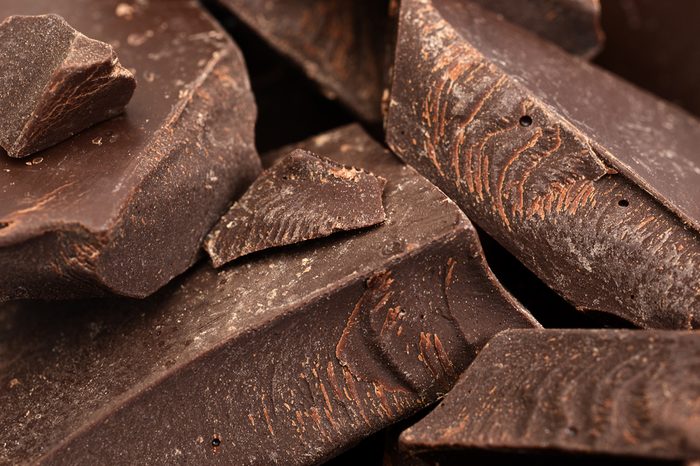
Dark chocolate
“I eat a piece of dark chocolate every day,” says Emily Rubin, RD, a clinical dietitian at Thomas Jefferson University in Philadelphia. “Who doesn’t love chocolate? It satisfies my sweets craving. It is low in sugar, offers fibre, contains antioxidants, and may even help prevent heart disease.” Rubin suggests looking for chocolate with at least an 86 percent cocoa content. Nosh on a small square of dark chocolate, or use it as an ingredient in hot chocolate, or make your own energy bites. (Check out these other healthy dessert recipes.)
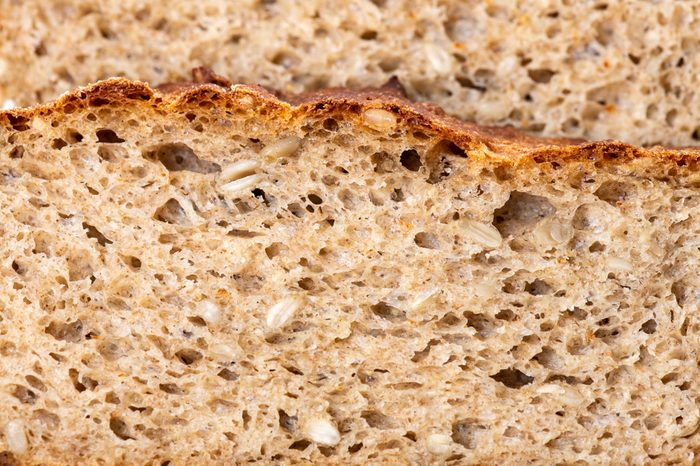
Bread
“I know many people cut bread out of their diets as they age, but the carbs in bread help power me through my high level of physical activity,” says Rosenbloom. “Bread also provides dietary fibre, B vitamins, and iron. I like getting vitamins and minerals from foods instead of supplements. I enjoy both whole grains and enriched grains for variety.”
What’s the difference between whole grain and enriched, refined products? Whole grains contain the entire grain kernel—including the bran and germ—which provides dietary fibre and many important vitamins and minerals. Refined grains have been milled to remove the bran and germ—but most refined grains are enriched to add back nutrients such as iron, folic acid, riboflavin, thiamin, and niacin after processing.
Next, find out if this nutrient-packed seed is worthy of replacing your everyday grains.
